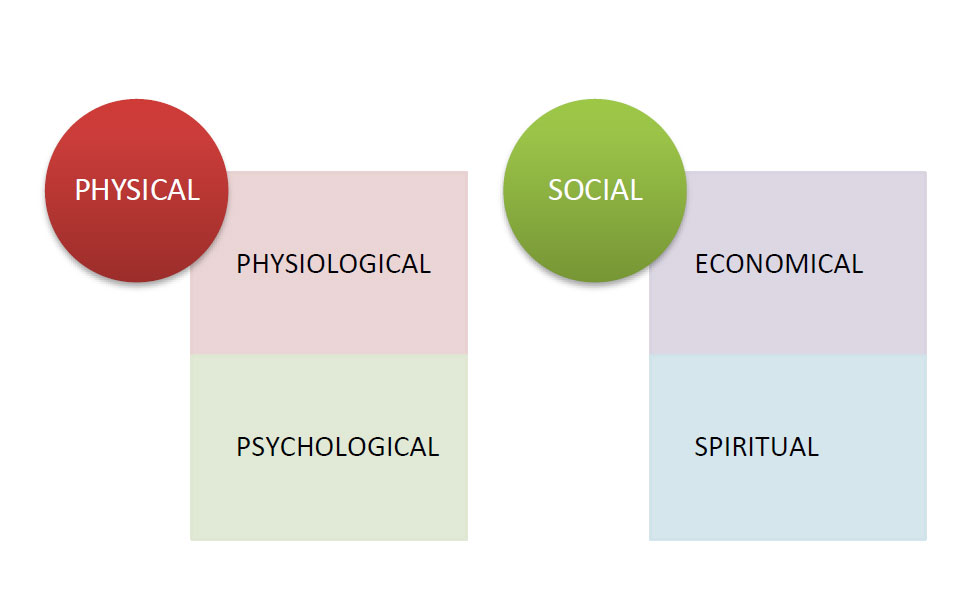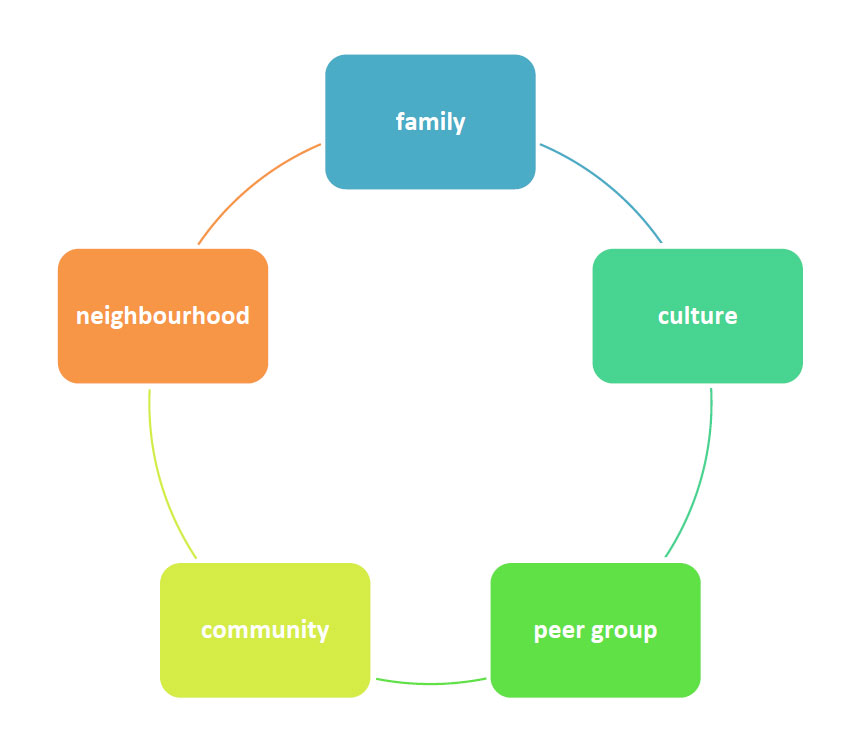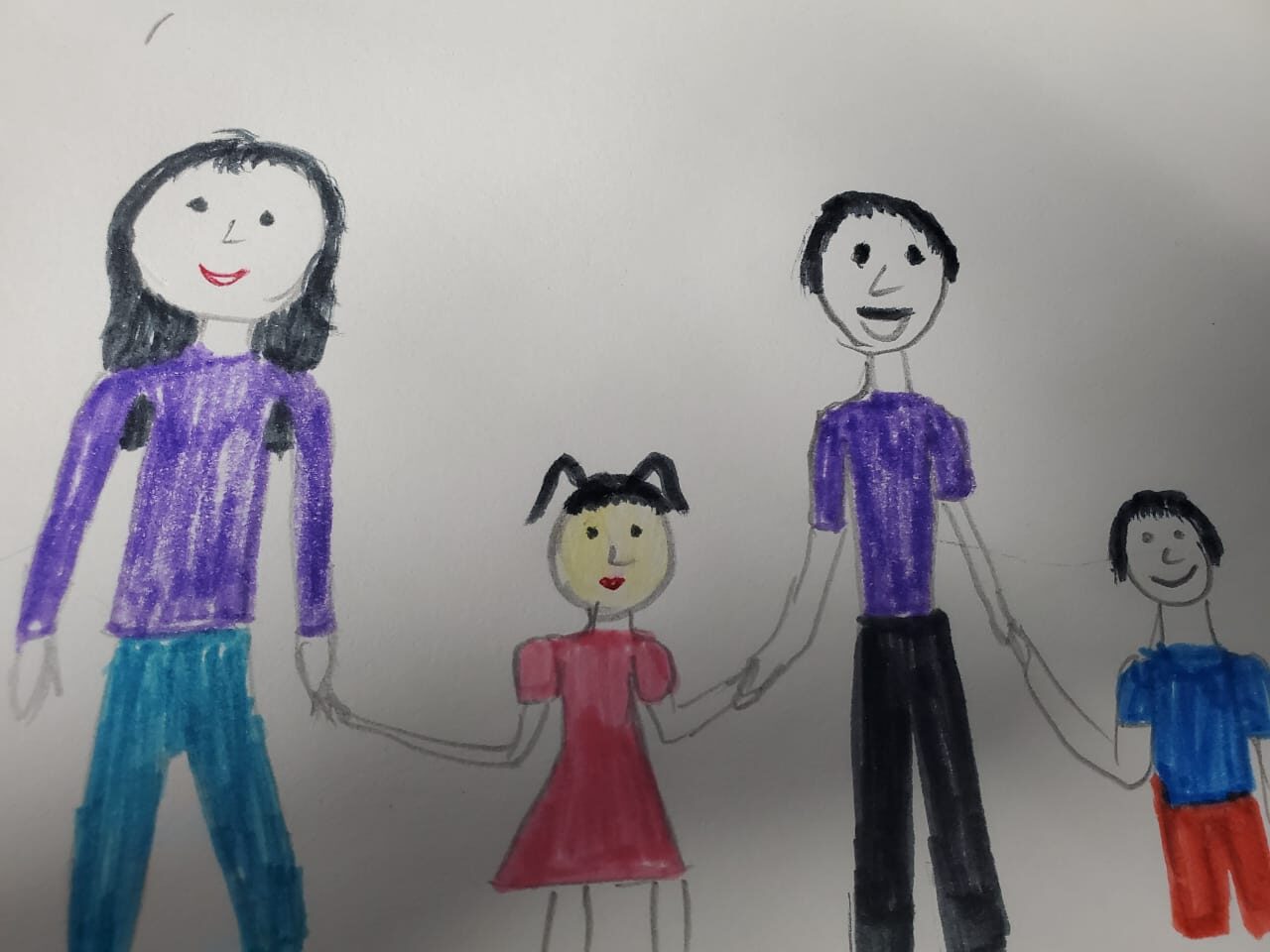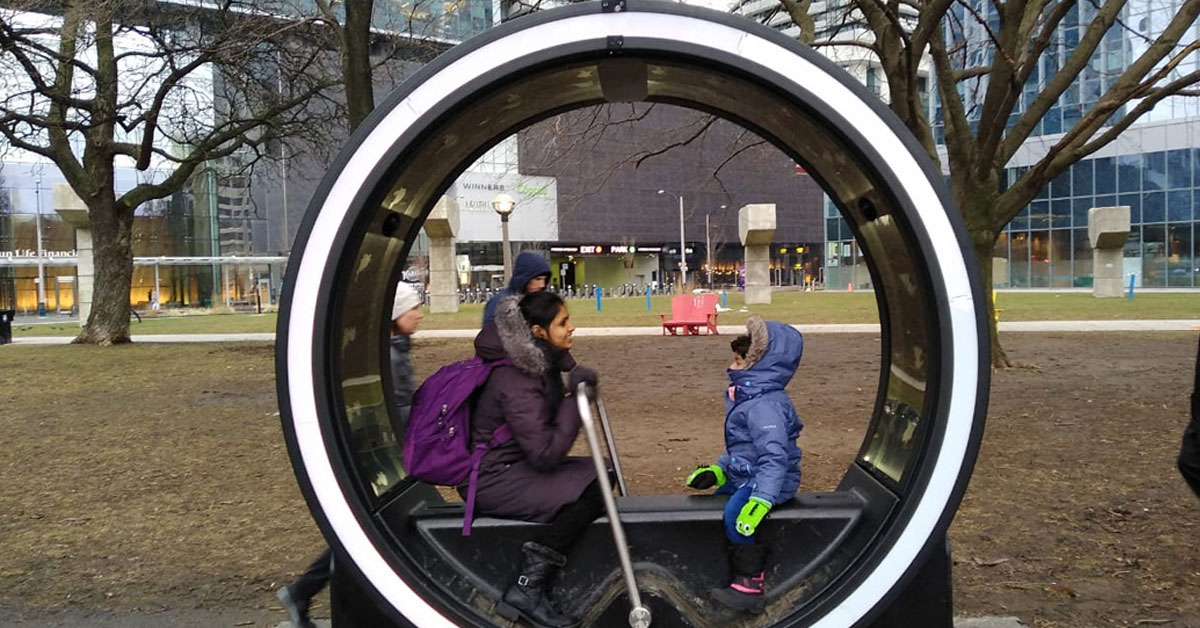When an infant is a newborn, parenting involves caring for basic needs, but as a child progresses through infancy to the first birthday, child-rearing differs among families. The way you rear your children affects how successful they can be later in life. Childrearing practice is the act of raising the child and thus, helps to promote interaction between the parent and child.
Factors affecting childrearing practices
- Social class, Income
- Religion, Grand Parent’s
- Culture and tradition
What is the need for effective child-rearing practices?
- Provides physical wellness to the child and keeps the child safe and protects from all sort of harm.
- Support the child’s physical development by providing food, meeting the hygienic needs and safe areas to explore and grow.
- Facilitate the child’s psycho-social well-being by giving affection.
- Enhance the child’s mental development using proper interaction methods with parents and society with the help of play and
communication.
Thus, child-rearing practices differ from one parent to another. Different child-rearing practices lead to different child upbringing. Each parent is special and all of them are good in their own way.
DIFFERENT PARENTING STYLES
Attachment
Begins from birth, it includes bonding and affection with the baby which starts at the time of birth itself, through breastfeeding, co-sleeping, baby weaning, understanding a baby’s cries.
Authoritarian
Parent’s do demand obedience from their children and they set very high standards, not giving chance for the child to take decisions, therefore, the children have very low self-esteem
Permissive
Allows the children to be active in the decision-making process and encourages their children to be creative and spontaneous.
Authoritative
Authoritative parent’s outline’s clear rules and punishments, parents are responsive to their children and use supportive discipline when a child misbehaves. Infants who are parented with this style grow into independent and well-adjusted children
Uninvolved
Parents don’t expect much from their child and don’t respond to them, often rejecting them altogether and not being involved in their matters.
VARIOUS ASPECTS OF CHILDREARING PRACTICES

PHYSICAL ASPECTS OF CHILDREARING PRACTICES
Physical aspect means the environment which helps in the normal growth and development of a child. A rich and fruitful environment must be provided to the child to draw out the best in the body, mind and soul of the child.

Children reared in a healthful home, have a high probability of developing good mental health and emotional health and thus a good personality.
Personal hygiene/ hygienic practices
Simple hygiene can check deadly bacteria.
- Hand washing
- Care for eyes, nose and ears.
- Skincare, the daily bath
- Wipe teeth with a damp cloth for infants and as the child grows to brush the teeth twice a day.
- Comb hair daily
Bath- a play between mother and child
A daily bath is required for the child with warm water and mild soap and dry baby with a cotton towel. Application of oil and massaging has many health benefits for children such as increases weight, makes the child alert and active, good sleep, muscle relaxation and enhances mother-child bonding. Oiling will soften scalp crusts. The duration of the massage should be about 30 minutes. Massage may be done in
sunlight, free of cold draughts. Bathing should be a playful experience for the child and mother.
Bedding in
Mother’s touch and presence will give a more secure feeling to the child, so say goodbye to the cradle, giving a chance for the child to lie safe and secure beside the mother. The child lying close to the mother will be more secure and enjoys mothers warmth than the child lying in a cradle.
In warm climates-Cotton linen is ideal, because it is washable, very soft, warm, nonallergic, and has good absorbent properties. Soiled diapers should be changed immediately.
In cold weather instead of using one or two sweaters, it is better to use many layers of lightweight clothing which are warmer than the heavy ones.
Footwear
Feet of children get easily damaged if incorrect footwear is used. Tights, socks, boots etc should therefore be carefully selected. Thus, soft chapels should be used in the initial stages.
PHYSIOLOGICAL ASPECT OF CHILD REARING
Satisfying basic human needs like air, food, water, light, physical activity, rest and sleep are important in childhood. If children have sufficient fresh air, a balanced diet, clean water, adequate light, activity, rest and sleep, their growth and development will be smooth.
NUTRITION
Initiation of breastfeeding
- Breastfeeding ought to be initiated within half an hour in case of normal delivery and within four hours after caesarean sections.
- The mother and baby should be relaxed and comfortably postured during breastfeeding (sitting, lying, cradle hold, football method)
- Babies tend to take a lot of air during feeding, leading to abdominal distension, pain, regurgitation etc, to get rid of this, the mother has to do winding or burping for the baby after each feed to remove the air sucked in i.e, by gently patting on the baby’s back with the right hand. Slowly air will escape and the baby will become comfortable. <><>
- Prelacteal feeds like gold rubbed in water, honey, glucose etc. should not be given. These items will satisfy the thirst and will reduce the vigour to suck and lead to diarrhea and helminthic infestation.
- Demand feeding should be the schedule to be followed, i.e feed the baby when the baby is hungry. There is no need to give boiled and cooled water or fruit juice in between while the baby is on exclusive breastfeeding.
- Breastfeeding should be continued when the baby is ill and during maternal illness.
- It can be given during infections because it is most easily digestible food for the ill baby. Expressed breast milk should be given if the baby cannot suck.
Complementary feeding
Breastfeeding should be continued well till the second year of life. After 6 months of age, it is extremely important to offer weaning foods in addition to breastfeeding.
- Babies become biologically fit to accept semi-solids after 6 months of age
- complementary foods like porridge can be given from 6 months onwards. Different varieties of porridge should not be given
each day. At first, anyone type should be used for a time period and then switch to the next to rule out allergies. - Fruit juice, vegetable soup, porridge- can be given first followed by breast milk. After 6 months rice can be given to the child
- It is better to avoid cow’s milk till one year if unavoidable can be given after 6 months.1 glass cow’s milk with ½ glass water.
- When a child reaches 9 months of age fish, meat etc can be given by properly cooking it and smashing it.
Introducing mixed diet
- From 1 year onwards, all food prepared at home can be given to the child. The pieces from curry can be washed and used.
- If a child hesitates to eat food, it can be mixed with other foods and made to eat.
- If too much salt, sugar, juice are given to the child, the child will have more like towards these food items and it will last till the end of the life.
- Give food to children along with others in the family. Timing should be correct all day and a small frequent diet can be provided. Avoid giving food to the child keeping the television on. It is good to tell a story and walk with the child outside and give food
- Never scold or beat children to eat food. It will make the child hate food.
Sleep
Sleep is physical as well as mental rest. Sleeplessness indicates some problem with physical health or mental health. Cold, heat, stomach ache, sound, hunger, any ill health makes a child get up from sleep. Never force the child to sleep. Neonates sleep for 12-20 hrs
and small children sleep for 8-12 hrs.
Parents are the one responsible for all behaviours of their child. Story and songs are good for the child. Music helps in the mental development of the child.
HEALTH AND ILLNESS
Health-is a nation’s fundamental natural resource and most important wealth. Children’s laughter will no longer sing in the home and community if health has deteriorated.
Illness makes life short and miserable. The child should remain two arms away from a sick person to avoid illness.
- Avoid exposure of young children to crowded places- market, cinema hall/buses.
- Avoid food handled by sick people.
- Avoid food outside the home.
- A sick child should be made to rest at home.
| EMERGENCY SITUATION | Safety measures |
|---|---|
|
|
Prevention should be the focus, which is better always….
Poor nutrition, infections and toxins are the three most frequent, yet preventable causes of childhood disability and mortality.
- Most prevalent communicable diseases are associated with poor sanitation.
- Protein Energy Malnutrition and Iron deficiency anemias are responsible for a total loss of health.
- Vitamin A deficiency adds to life losses.
- Malnutrition aggravates respiratory disorders, diarrhea and immunizable diseases.
- Breastfeeding provides all the necessary nutrients in a baby’s life.
The solution to nutritional problems:
The best solution is to have enough calories, proper protein intake and inclusion of Green, yellow and other vegetables and fruits in a child’s diet.
How to reduce respiratory diseases in children?
- Extended breastfeeding
- More calorie and protein intake
- Avoid indoor air pollution( smoke fuel and cigarette smoking)
PSYCHOLOGICAL ASPECTS OF CHILD REARING PRACTICES
Emotional health is very important in developing personality and social life. Emotional stability helps an individual to lead a happy and peaceful life with self and others.
Do you know the factors that negatively influence the emotional development of a child?
- Lack of security, fearful atmosphere or environment, the traditional concept of discipline, poor physical conditions in and around
Parenting with love
- Love is the most needed unique experience in the world that has a very much impact on children. Lie down with your baby, on your chest, just experiencing the intensity of love. Sit cuddling your child, staying aware of each other as you do.
- Children need lots of physical contacts every day. A special physical pleasure is shared with affectionate touch, looking, listening, holding, caressing, smelling, and kissing. Thus, love has physical nurturing, which needs to be provided by parents.
- Hold your child close when they lean against you.
- Take their hands and hold them for a while as you tell them a story.
- Have long hugs frequently.
- Look warmly at your child as they look at you.
- Sound warm, loving and nurturing as you talk to the child.
- When a child is excited, exclaim with them.
Love automatically conveys understanding, acceptance, openness and sharing, just with the feeling and nothing else.
- Tell children how much you love them and enjoy them.
- Encourage children to tell you that they love you.
- Encourage them to tell their feelings.
Accepting child
Each child is unique, parents should accept the way the child is. Never compare the child with other children. If children are accepted by their parents, their self-confidence increases and thus succeeds in life. Both male and female children should be cared for and reared equally.
Appreciation
Small achievements done by children are a very big deal for them. They like to do things in their own way and expect appreciation. Parents should not be criticizers, but motivators, which contributes to the development of a child’s personality.
Celebrations
All festivals and celebrations are meant for children. They are the one given the freedom to enjoy it. Remarkable moments should be provided to children. Small- small occasions should be celebrated for the sake of children.
Discipline
Parents should always remember that discipline and punishment are not interchangeable terms. Discipline means setting rules or road signals. So the child knows what is expected of them.
Punishment is a consequence that results from a breakdown in discipline, from the child’s disregarding the rules that were learned. It is important that parents begin to instil some sense of discipline early in the life of a child.
Two general rules :
parents need to be consistent and Rules are learned if a child’s right behaviour is praised rather than wrong behaviour
Tips to discipline child
- Minimize attention to unwanted behaviour, avoid too much discussion regarding that
- Ignore small stuff
- Give plenty of attention for desirable behaviour
- Introduce age-appropriate reward System
Negatives of physical punishment in child
- Lead to aggression in children
- No positive outcome
- Physical wound
- Severing relationship
- Leaves scars for life long
Better Discipline Methods
- Hitting and punishing kids is pointless
- Sent child to 1 minute time out zone
- Praise when the child is right
- Be consistent and repeat rules
- Do not make hollow threats
SOCIAL ASPECTS OF CHILD REARING PRACTICES
Social development means the development of an individual in such a way that he becomes an efficient and useful member of the society to which he or she belongs.
Factors affecting the social and emotional development of the child

Toilet training
Toilet training should not be started very early because cognitively and socially, children do not understand what is being asked of them until they are 2 or 3 years old. As a rule, children are ready for toilet training when they can understand what their parents want them to do and when they begin to be uncomfortable in wet diapers.
Customs and traditional practices in child-rearing
Many traditional practices exist with regard to child-rearing, it is there in all cultures from ancient times. Some of the traditional practices are still useful for us, some are neither beneficial nor harmful, unfortunately, many of these traditional practices are harmful and have outlived their time.
Useful customs and traditions
- Rooming-in of a mother and baby in an isolated room.
- Honey and warm water relieves neonatal constipation
- Breastfeeding till 2 years bridge the food gap
- Soaked biscuits used as weaning food
- Warm milk with turmeric to cure sore throat
- Thulasi, honey, ginger, lemon for the common cold
- Abscess fomented with a warm cloth
Discourage harmful practices
- Baby bath soon after birth, Vigorous massage of the newborn before bath
- Swollen breasts of newborn squeezed and massaged to express milk
- Oil installation in nose, ears, eyes and anus. Kajal rubbed in eyes
- Hot water used for bathing, Prelacteal feeds like honey, sugar water given.
- Colostrums are thrown considering it harmful, Discontinuation of breastfeeding if the mother has a minor illness and if the child has diarrhea, night breastfeeds not allowed, feeding schedule as per clock adjusted.
- Household medicines used as eye drops, Hot oil used as ear drop for earache.
Child’s play
Play is important to children’s social, physical, and emotional development and to their sense of well-being and sense of themselves.
- Creative play can teach the child about the world, and teach the parents about the child.
- Television and videogames robe children of imagination and in-depth thinking. Imagination helps to set goals and give up the hope needed to achieve them.
ECONOMICAL ASPECTS OF CHILD REARING PRACTICES
The economical status of the family and the methods adopted for child-rearing influences the social growth of the child. The child should be reared by making him/her realize the financial shortfalls of the family. This helps the child to remember the hard work and struggle parents have undergone to rear him/her. Never buy all that is been asked by the child, which will make the child lead a luxurious life in future.
SPIRITUAL ASPECT OF CHILDREARING PRACTICES
All the aspects of life and are taught to the child. But when concerning spirituality, parents always doubt how to teach the child, they think that child will gain knowledge on spiritual aspects as he/she grows. But this concept is not true.
- Teach the child how to pray, whom to be prayed, who is the God.
- Encourage and make the child pray before going to bed and waking up from the bed.
- Clear the doubts of the child regarding God and grow the child in God-fearing.
- Family prayer should be never neglected, time meant for prayer should be strictly followed by parents.
- Mother is the basis for spirituality and faith for the child.
Tips for child-rearing practices
- Put parenting first
- Review how you spend the hours and days of your week with your child
- Use good language and Punish with a loving heart, always praise good behaviour
- Learn to listen to your child, get deeply involved in your child’s life
- Make a big deal out of the family meal, teach good table manners
- Do not reduce character education to words alone, teach child independence, self-sufficiency and responsibility, give child responsibility, do not do what they can do
- Let your child know you are excited to see them when they enter the room and are more important than your work
- Limit your child’s media
- Teach children to share things, politeness, good manners. Always praise good behaviour
- Be a good example
The real need of your child is love, care.

From different generation to generation, culture to culture and social class to social class the childrearing practices goes on changing.

